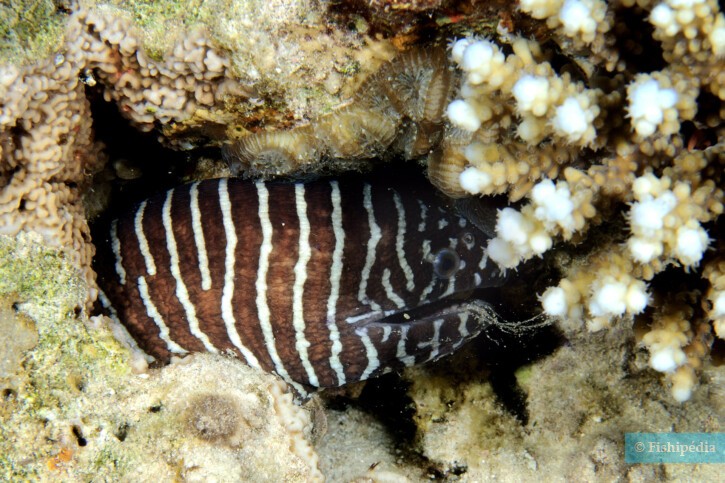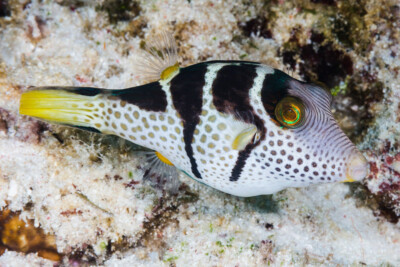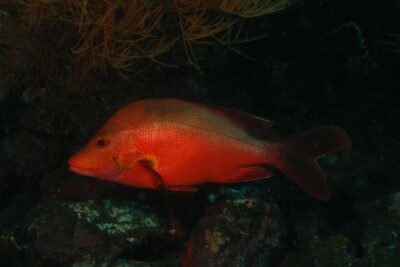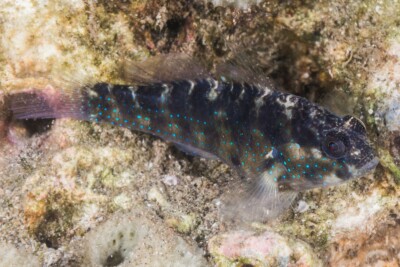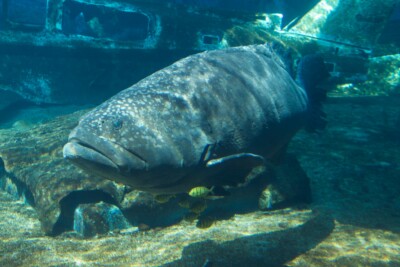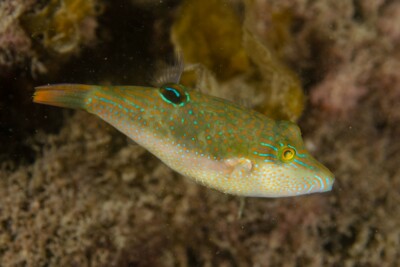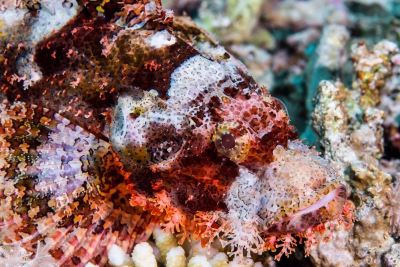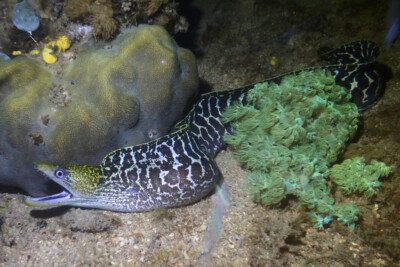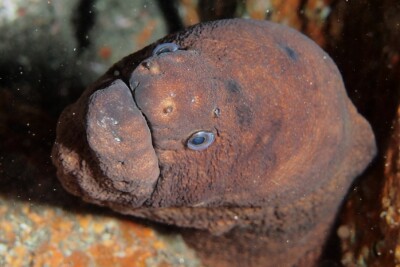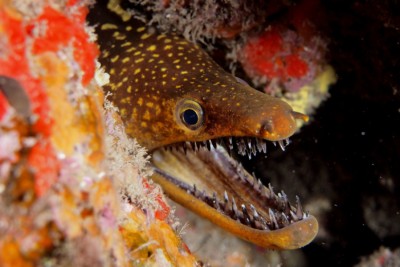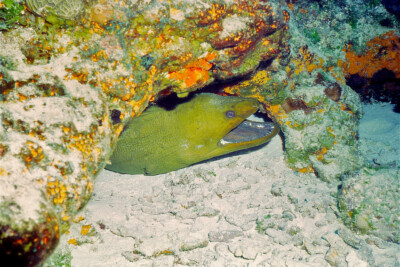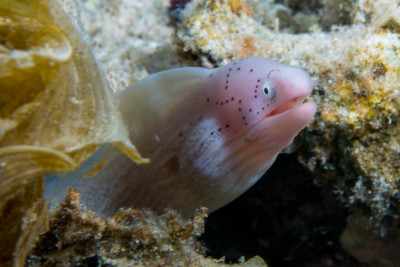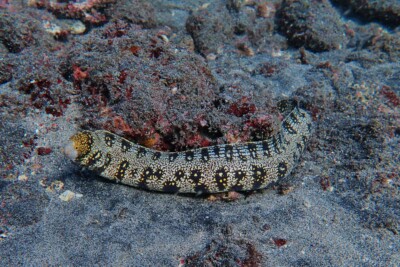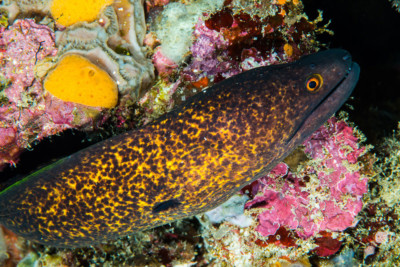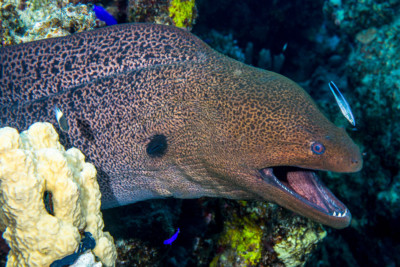zebra moray
| Scientific name | Gymnomuraena zebra |
|---|---|
| Descriptor | Shaw |
| Year of description | 1797 |
| IUCN category (World) | LC |
| Family | Muraenidae |
| Genus | Gymnomuraena |
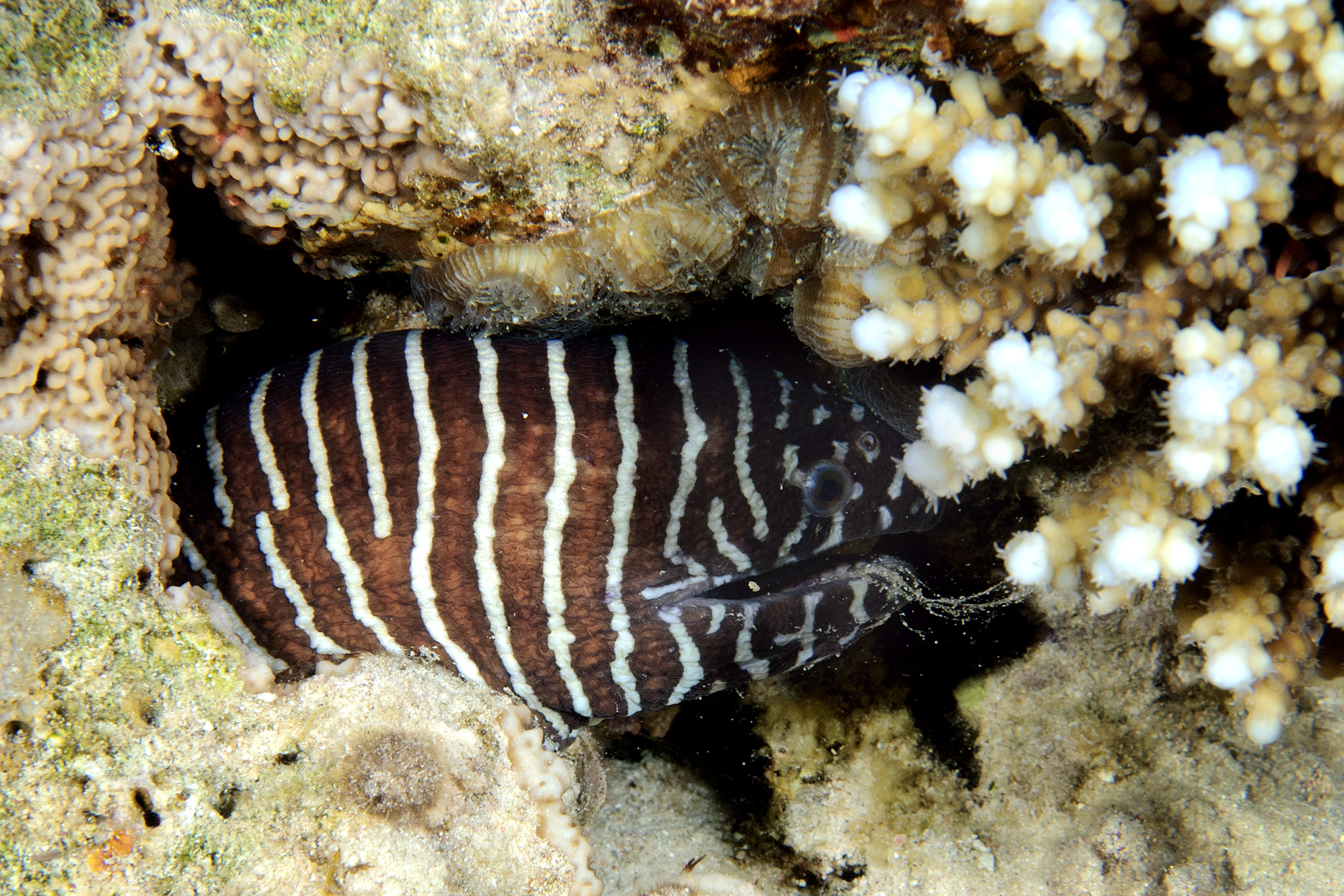

Introduction
Gymnomuraena zebra, commonly known as zebra moray, is a salt water fish.
This sheet is currently being prepared. The texts currently proposed come from our data model or are being drafted. To request priority for this content, you can write to us HERE.
Who is it?
Morphology
-
Average size70 cm
-
Maximum size150 cm
-
Patternvertical stripes
-
Average size70 cm
-
Maximum size150 cm
-
Patternvertical stripes
How to recognize This fish ?
The zebra moray measures between 70 and 150 cm. This fish is bicolore with a predominantly marron and blanc body. The also has blanc vertical stripes.
Behaviour & Life cycle
-
dietcarnivorous
-
Sociabilitysolitary
-
territorialYes
-
Way of livingnocturnal
The zebra moray is a fish solitary naturally found Dans un terrier. This species is carnivorous . This fish lives mainly at night. Usually, it leaves its hiding place and starts to be active once it gets dark.
The zebra moray is a territorial animal that does not tolerate any incursions into its living area. It is particularly virulent against other territorial species and it can provoke heated fights. Relationships between conspecifics are also hectic, with each seeking to secure its place.
Reproduction
-
Reproductionovipare qui pond en eau libre
-
Hermaphroditeprotogynous
The zebra moray is a fish ovipare qui pond en eau libre. always born female. Growing up, individuals will change sex to become male, this is called successive hermaphroditism of the protogynous type.
Harmless species
This species does not represent any particular threats to humans when encountered in its natural environment.
Origin and distribution

What is its habitat?
Natural environment characteristics
-
Temperature24 - 29 °C
-
Depth3 - 50 m
Biotope presentation
The zebra moray is most often found at a depth between 3m and 50m. However, it is not impossible to find this species at other depths.
Species of the same biotope
To go further
Sources & Contributions
Participation & Validation
The Fishipedia team and specialist contributors are committed to providing high-quality content. However, although the information comes from scientific sources or testimonials from specialists, the cards may contain inaccuracies.

Benoit Chartrer
Translation
Translation done with the valuable contribution of our translators, who make this information available to a wider audience. We sincerely thank them for their commitment.
Scientific partners
Tags
#Muraenidae
#Gymnomuraena
#barrière de corail
#fonds rocheux
#tombant
#zone mixte
#Bay of Bengal
#Persian Gulf
#Great Barrier Reef
#mer d'Oman
#East China Sea
#Philippine Sea
#Sea of Japan
#Red Sea
#South East Asian Seas
#Indonesian seas
#East Indian Ocean
#western Indian Ocean
#Galapagos
#Océan Pacifique Nord Est Tempere Chaud
#Tropical Eastern Pacific
#Western Tropical Pacific Ocean
#Bali
#Lombok
#Nusa Penida
#French Polynesia
Species of the same family
Species of the same biotope
